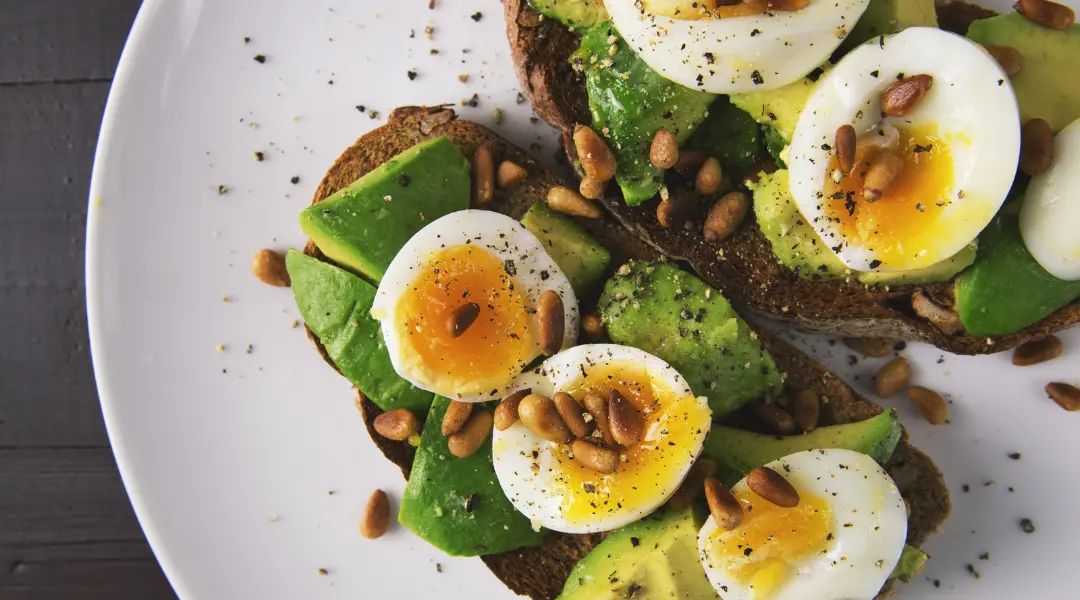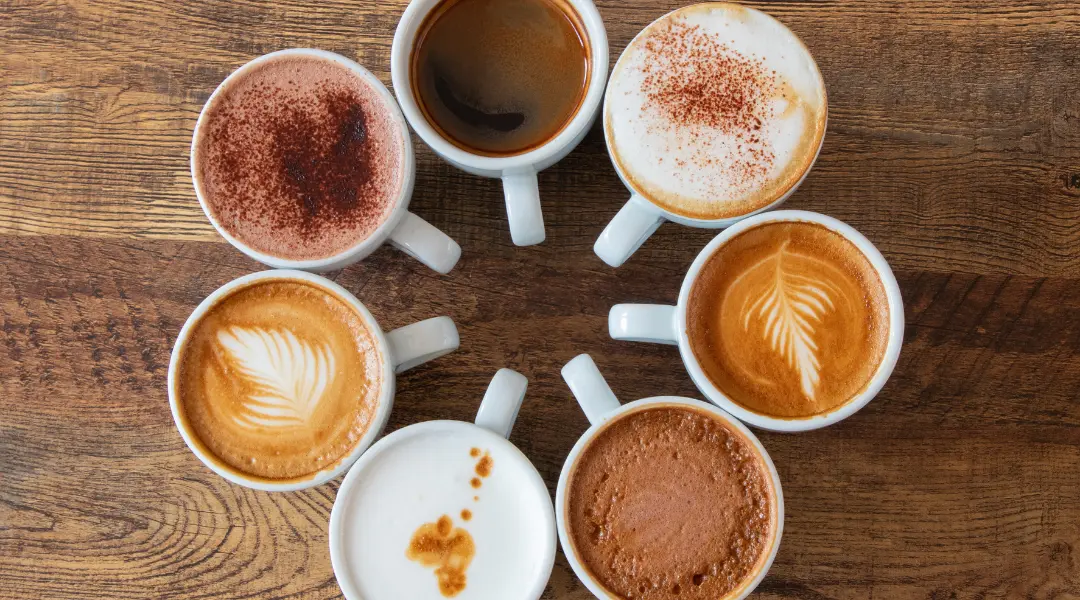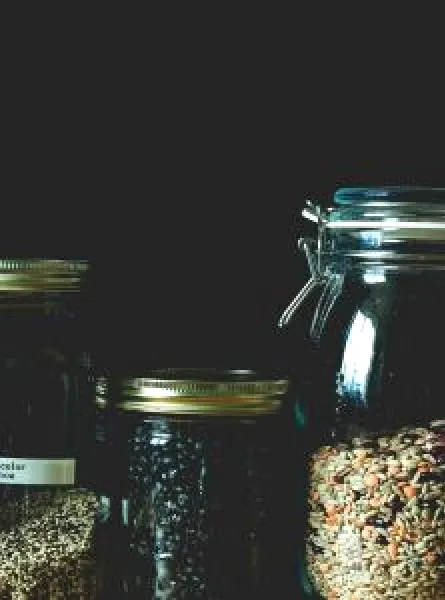
Do you have trouble falling asleep, wake up frequently during the night, or feel tired upon waking? Insomnia, especially when it becomes chronic, can harm both the body and the mind.
Inadequate sleep affects not only mood and energy levels but can also disrupt vital functions like the immune system and appetite regulation.
Fortunately, it is possible to support better sleep through dietary changes—with the guidance of our registered dietitian nutritionists!
Nutrients that Impact Sleep
Melatonin, often referred to as the sleep hormone, is naturally produced in the brain and plays a key role in regulating the sleep-wake cycle. The body synthesizes it from an essential amino acid called tryptophan—a compound the body cannot produce on its own and must be obtained through food. For proper conversion, the body also needs B vitamins (especially B6), magnesium, and zinc.
According to a scientific review on nutritional factors influencing melatonin production, a diet high in fiber, fruits and vegetables, and low in refined sugars is linked to better sleep quality. Other studies have shown that certain foods boost melatonin production, reduce inflammation, and promote deeper, more stable sleep.
Where to Find These Nutrients in Food

-
Foods rich in tryptophan: dairy products (e.g., yogurt, cheese, milk), poultry (e.g., turkey, chicken), eggs, pumpkin seeds, and soy-based products (e.g., tofu, soy milk).
-
Sources of vitamin B6: fish (e.g., salmon, tuna), bananas, potatoes with skin, whole grains, and avocados.
-
Foods rich in magnesium: nuts and seeds (e.g., almonds, sunflower seeds), legumes (e.g., lentils, chickpeas), spinach, and dark chocolate.
-
Sources of zinc: legumes (e.g., beans, chickpeas), pumpkin seeds, cashews, and whole grain cereals.
What to Avoid in the Evening for Better Sleep
Just as some foods can support sleep, others can negatively affect its quality.
The Main Sleep Disruptors in Your Diet

- Coffee, tea, energy drinks, and chocolate: caffeine and theine can have stimulating effects for several hours after consumption.
- Alcohol: may seem relaxing at first, but it disrupts deep sleep.
- High-fat meals right before bed: slower to digest and can cause nighttime discomfort.
Why Meal Timing Also Influences Sleep
The human body follows a natural rhythm called the circadian rhythm. It is influenced not only by light but also by the timing of meals. Eating at consistent times helps keep your biological clock in sync!
Simple Tips to Eat in Sync with Your Circadian Rhythm
- Establish a meal routine based on your hunger and personal needs: to stabilize energy and avoid cravings.
- Have dinner at least 2 to 3 hours before bedtime: to avoid going to bed while digesting and reduce the risk of reflux.
- Don’t skip meals: it can lead to excessive hunger later in the day, making it harder to listen to satiety signals and increasing the risk of overeating and feeling overly full.
4 Simple Strategies to Promote Better Sleep
1. Choose Sleep-Supportive Snacks
A nighttime snack can prevent wake-ups caused by hunger. If it includes complex carbs, it helps tryptophan reach the brain. When paired with a protein source, it also helps stabilize blood sugar levels overnight.
A few examples:
- Crackers + cheese
- Cottage-style raspberry cheesecake mousse
- Protein chia pudding
- Greek yogurt + pumpkin seeds or nuts
- Smoked salmon rolls
2. Make Your Dinners Light and Nourishing
A high-fat meal slows digestion and may disrupt sleep!
Here are some lighter meal ideas approved by our dietitians:
- Sheet pan veggie bake
- Quick Asian-style salmon and veggie sheet pan
- Peanut chicken stir-fry with vegetables and grated tofu
- Slow cooker chicken pasta
3. Include Magnesium Sources Daily
Magnesium helps relax muscles and calm the nervous system. It also appears to play an essential role in sleep regulation, quality, and efficiency.
Here are a few food ideas to include on your menu:
- Add sunflower seeds to salads
- Add spinach to omelets, soups, or sandwiches
- Include almonds as a snack or chopped into muffins
4. Stop Consuming Stimulants After 2 PM
Caffeine tolerance varies between individuals. Caffeine and theine stay in the body for a long time and can delay sleep if consumed near bedtime. Caffeine is found in coffee, chocolate, and energy drinks, while theine is in black and green tea.
Replace your afternoon coffee with a relaxing herbal tea (chamomile, lemon balm, lavender). Avoid drinking it too close to bedtime to prevent waking up at night due to the urge to urinate!
5. Other Tips for Better Sleep
- Avoid blue light exposure from screens before bed.
- Stick to a consistent sleep routine—even on weekends—for regular sleep patterns.
- Choose relaxing activities like reading in bed, meditation, or a warm bath before sleep to greatly improve sleep quality.
Team Up with a Registered Dietitian to Build Healthy Sleep Habits

By choosing the right foods, organizing your meals, and avoiding certain evening triggers, you can enjoy more restful nights—and most importantly, improve your overall health!
A healthcare professional like a registered dietitian can help you identify habits that interfere with your sleep and suggest personalized solutions based on your preferences, lifestyle, and individual situation.
Book an appointment with a registered dietitian for personalized and practical guidance tailored to your needs!





